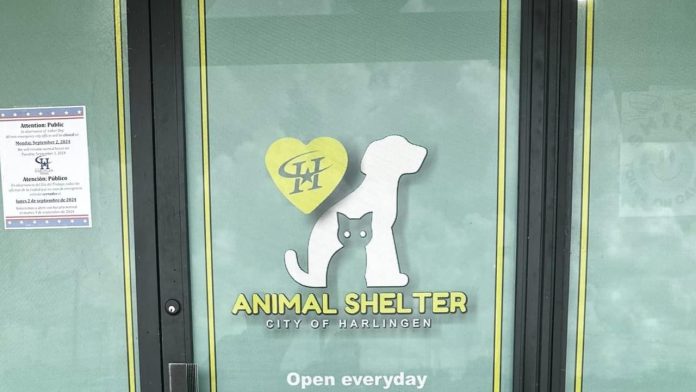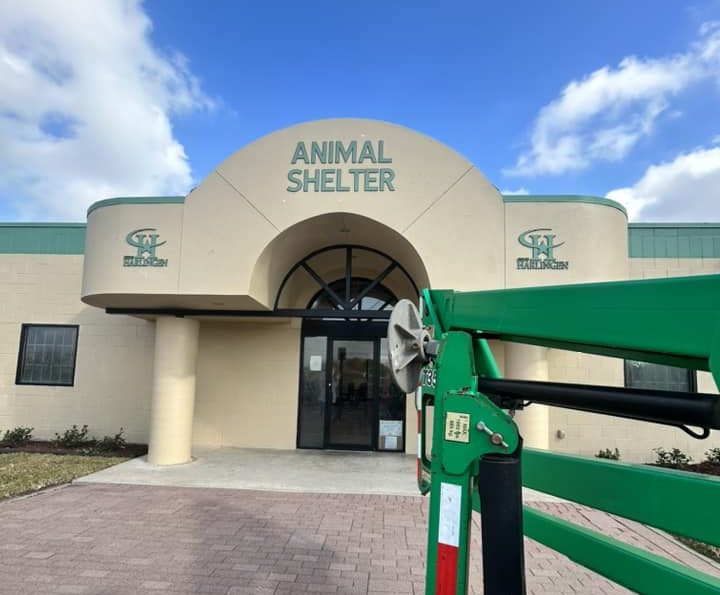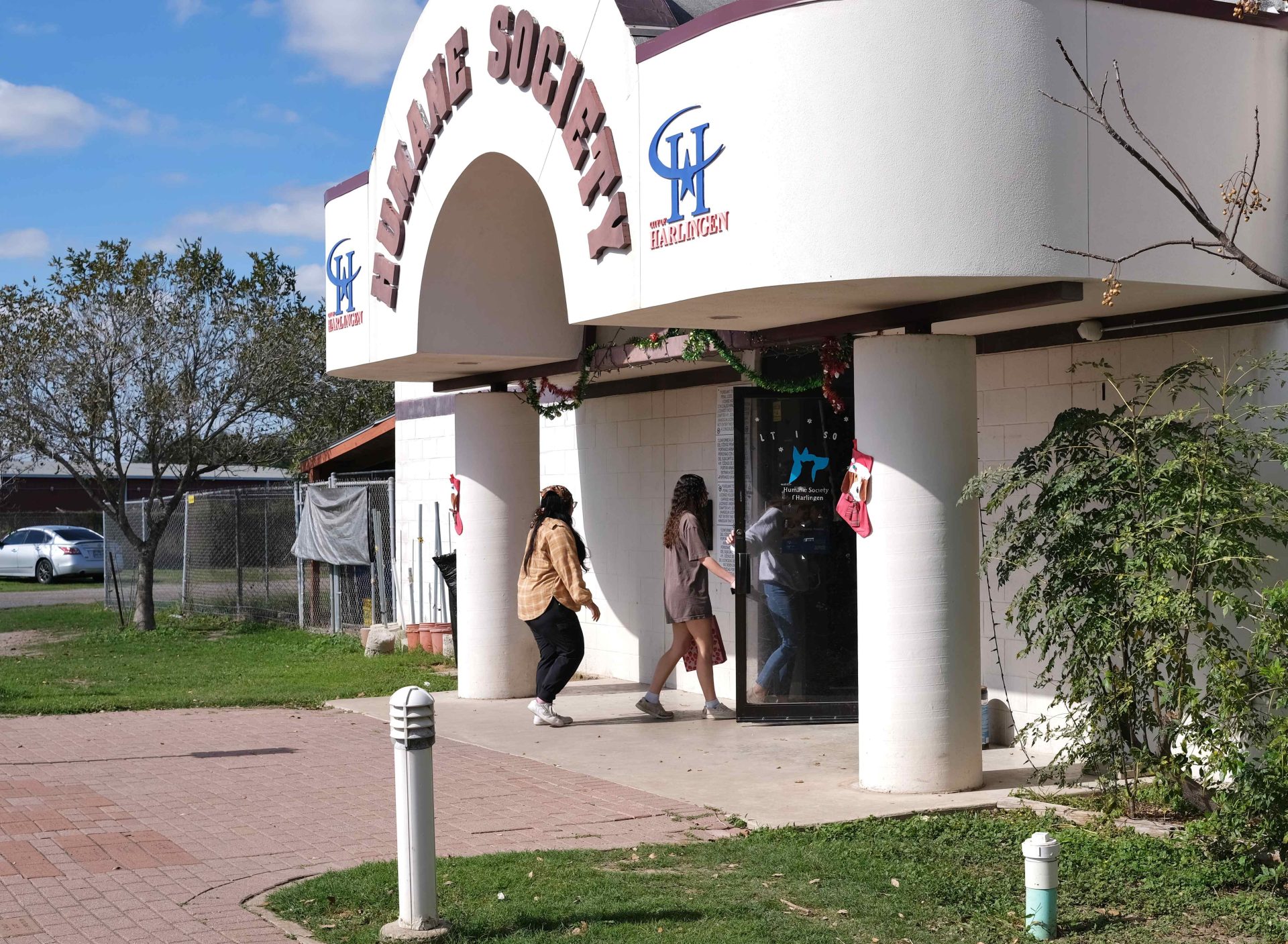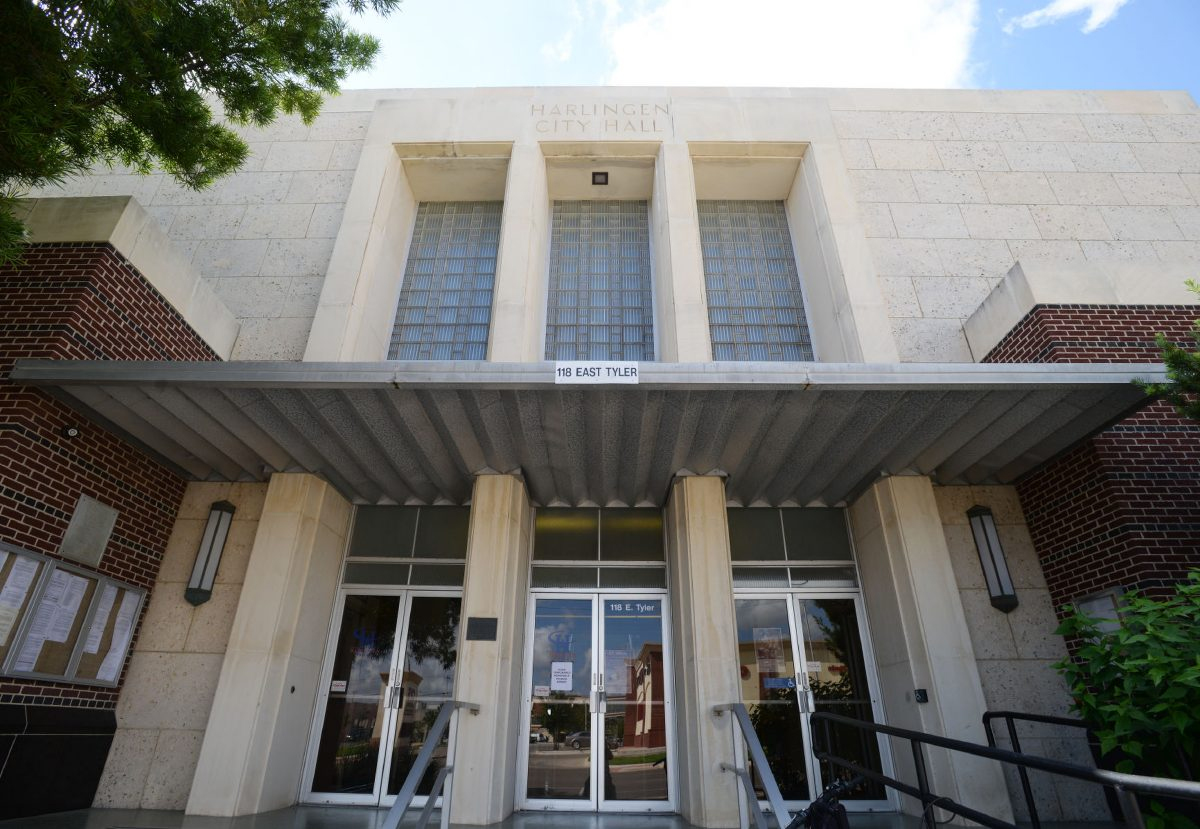
|
Only have a minute? Listen instead |
HARLINGEN — City officials are blaming a distemper outbreak for sparking what an animal rights advocate described as the new Harlingen animal shelter’s “industrial scale” euthanasia.
During June and July, the animal shelter faced a distemper outbreak that led veterinarian Robert Kellogg to recommend euthanasia, Shannon Harvill, the city’s environmental health director overseeing the shelter, said.
Citing city records, Rudy Coronado, an animal rights advocate, said the shelter euthanized 203 animals out of 244 in the shelter in July, what Harvill described as the outbreak’s worst month.
“Distemper is extremely contagious,” Harvill said in an interview.
Last week, Coronado, who obtained shelter records from the city, told commissioners the euthanasia rate was “skyrocketing.”
“The rate of euthanasia has skyrocketed to an industrial scale,” he said during a Sept. 18 meeting’s public comment period.
From the podium, Coronado cited city records showing the shelter euthanized 203 animals out of 244 in July.
“That’s disturbing and that’s heartbreaking,” he said. “These are not just numbers. These are lives — furry little animals with heartbeats that you all euthanized.”
Citing a new city program aimed at spaying and neutering animals held at the shelter, Coronado questioned Harlingen’s $200,000 project.
“What makes this situation even more frustrating is that $200,000 is supposedly secured for spay and neuter services,” he told commissioners. “Meanwhile, 203 animals were put down in a single month. How can we justify needing that money for spay and neuter when you have no animals? When you took over (the shelter), I was expecting spay and neuter clinics, vaccine clinics, high adoption numbers, high rescue numbers. We got the total opposite of any of that.”

From February to July, records show the shelter euthanized 745 animals during the period in which it accepted 1,088 animals into the shelter.
On Wednesday, Commissioner Rene Perez cited the shelter’s distemper outbreak as leading Kellogg to recommend euthanasia.
“Our animal shelter recently faced a challenging distemper outbreak, but thanks to the outstanding work of our dedicated staff and contracted veterinarian Dr. Kellogg we were able to save many of our shelter animals’ lives,” Perez said in a statement.
“While euthanasia was only used as a last resort to protect the health and well-being of the animals in our care, there has been some misinformation circulating that lacks important context,” he said.
In January, city officials took over the animal shelter’s operations a month after terminating the Rio Grande Valley Humane Society’s $400,000 annual contract, claiming the “no-kill” agency breached its agreement when it refused to accept residents’ pets along with some animal control officers’ intake requests.
“I want to make it clear that, unlike in the past when the previous organization in charge of our shelter would close its doors to reduce intake and keep euthanasia numbers low, our shelter has remained open to all animals in need,” Perez said in his statement.

Perez pointed to what he described as “misinformation” spreading as candidates campaign for the Nov. 5 election, in which three commission seats are up for grabs, including Perez’s District 5 seat, Commissioner Michael Mezmar’s District 3 seat and Commissioner Frank Morales’s District 4 seat.
“With election season in full swing, it’s important to be mindful of the spread of incomplete or false information,” Perez said in his statement. “The complexities of managing an outbreak and protecting the animals’ health require difficult decisions, and misleading information undermines these efforts.”
Now, city officials are planning to release information clarifying city records which Coronado cited during last week’s meeting.
”We will soon be sharing accurate numbers and additional details, and we remain fully committed to providing the best care for our animals and finding loving homes for as many of our furry friends as possible,” Perez said. “We are committed to transparency and providing essential services to our tax-paying residents. I encourage everyone to come directly to the city for factual information.”
The city records which Coronado cited lacked details, Assistant City Manager Josh Ramirez said in an interview.
“We’re going back to that report and retrieving that data and the explanation as to why the animal was euthanized,” he said. “We’re trying to be more clear as to what happened to the animal.”
At the shelter, Kellogg, who co-founded the Human Society during his 40-year career, determines whether an animal’s conditions require euthanasia, Ramirez said.

Under law, the city-owned shelter is required to accept all animals, regardless of their conditions, Ramirez said.
“Regardless of the condition the animal is in when it’s brought to the shelter or picked up on the street, we have to take it in by law,” he said.
In public animal shelters, distemper outbreaks often lead to euthanasia, Ramirez said.
“For a public municipal animal shelter, those are regular conditions we see in public shelters,” he said, referring to distemper leading to euthanasia.
In January, city officials took over the shelter after the Humane Society, operating what it described as a “no-kill” shelter, stopped accepting residents’ animals, Ramirez said.
“At the time the Humane Society was running the shelter, they were faced with the same problems,” he said. “Our citizens would say they tried to drop off an animal but (the Humane Society) wouldn’t take it. They stopped taking in animals. They sent animals to other shelters, other humane societies. We asked the Humane Society to partner with us and rescue some of our pets, and they declined.”
In January, city officials took over the shelter, with commissioners pulling $365,937 from the city’s general fund budget to foot the payroll for an 11-member staff, with Harvill overseeing the operation.
A month later, commissioners entered into a $1,248 monthly contract with Kellogg.
Since then, commissioners have funded requests including the purchase of a $38,360 animal transport van and a $900 computer software program while hiring a second animal adoption coordinator at a salary of $40,771 with benefits.

